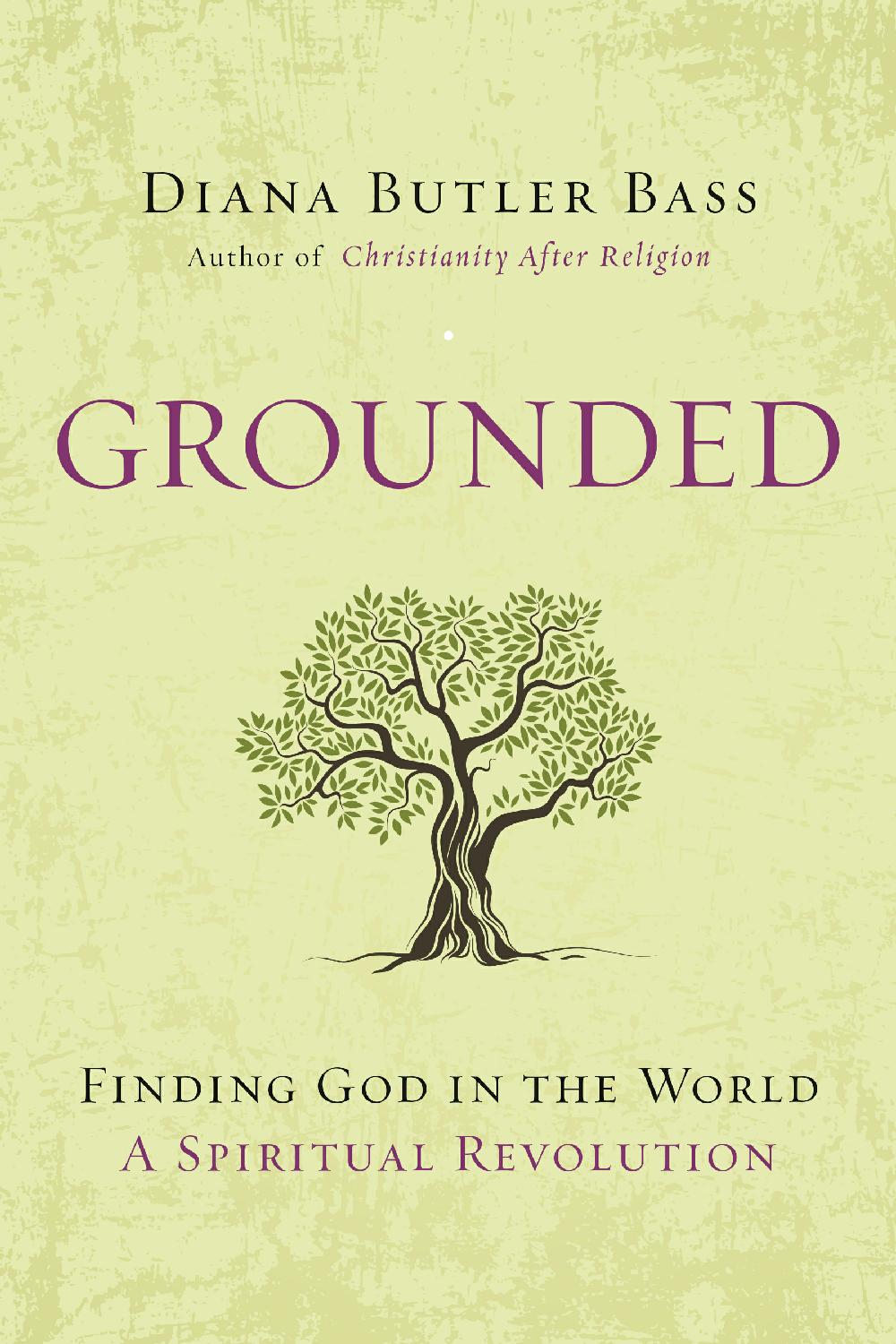I've just put down Diana Butler Bass' newest book, Grounded: Finding God in the World - A Spiritual Revolution. It's a good read for pastors of moderate and liberal churches who are trying to make sense not only of the "spiritual but not religious" demographic trend, but what religion looks and feels like to a typical college-educated person. Because Grounded does such a good job of describing a "down to earth" or "neigborhood level" spirituality, it's also a good book for a church member or lay leader who is trying to understand their own spiritual impulses - why they may look and feel so different than those of their parents or grandparents... and whether these spiritual impulses even allow us to still call ourselves "Christian."
The disarmingly simple question the book asks is "Where is God?" Butler Bass sets this question in contrast to a more familiar theological question, "Who is God?" Where, Butler Bass says, is the better question for the way religion and spirituality are actually sought out and experienced in the world today. The "landscape" of theology in 2016 is less "vertical" (looking up for God in heaven) and more "horizontal" (looking for God around, among, and within the places we live). People today seek God as One who is near, rather than far - they look for practices that draw God close (spirituality) over practices that reify distance (religion). The book is divided into two main parts: the first focuses on God's presence in nature, specifically "dirt," "water," and "sky"; the second part examines "human geographies" - communities, physical and imagined, that shape our location in space and time, our sense of place. Here Butler Bass meditates on loose concepts like "roots," "home," "neighborhood," and "commons."
Grounded draws from contemporary liberal theology, American history, sociology, and a bit of science. Butler Bass' gift is that she takes big ideas and renders them as common sense - to my sensibility, not unlike what David Brooks tries in his NYTimes column. She is, I believe, the best (ie, the most accurate and intelligible) interpreter of what is actually happening in contemporary progressive / liberal religion working today. She is part journalist of it, part evangelist for it.
Grounded speaks to me on two levels. The first is its lovely rendering of eco-theology. Christianity, saddled by historic theologies that rendered the earth as an instrumental object rather than an autonomous subject, is late to respond with vigor to our climate crisis. When Christians do come to those causes, few of us bring a coherent biblical or theological perspective. We're more likely to talk about the particles of carbon in the air than about the elemental role of dirt in Genesis or the hydraulics of the Gospel of John. Butler Bass says that the elements of nature are intrinsic to the Biblical story a theological understanding of God. God is unintelligible to us without an appreciation for, and an experience of, the Creation in which God places us. The straightforward but substantive environmental theology in Grounded will help folks who've never heard an ecological sermon to understand why God expects them to show up at the next 360.org action - it will give them a sense of how to testify when they get there.
But the second part of the book I liked even better than the first. Butler Bass is out to make the case that theology - speech about and knowledge of God - is about "us and we" more than "I and me." As people, our identities are constituted by relationships--to history, to place, to culture, to others. Her charge that Christian theology has been too focused on individualized concepts of salvation ("getting one's sorry ass to heaven," pg. 237) is not new. But what she adds that does feel new to me is a fleshing-out of what "corporate" salvation looks like. This comes together most effectively in the chapter called "commons." Here, Butler Bass focuses on a powerful term from secular progressive (and largely anti-corporate, anti-capitalist... the YES! Magazine crowd) cultural spheres, and invests it with theological heft. Communitas, communion, and compassion - all deeply theological concepts - combine to give us our sense of the commons - a social space that is broad, generous, inclusive, hospitable, and just. This is a powerful yoking of the Christian tradition - its gravitas and story - with the energy and vision of the progressive left.
I appreciate the way the theology in Grounded appears as more Trinitarian than Christo-centric. God, Spirit, and Jesus are all at work in and through Grounded, and because salvation is a corporate rather than individual concept, "what Jesus did for me" (which always felt to me like a contortion of the biblical message) is replaced with a fuller, broader vision of "what God does in and for the world." This is not watered-down Christian theology - this is better Christian theology: more balanced, biblical, and written to engage in the multi and inter-faith contexts in which so many of us live every day.
I strongly recommend Grounded as one of the touchstone theological books of the decade for the liberal church. It will help us keep our bearings - keep us grounded - in our own tradition as we engage in the cultural, political, and ecological conversations that matter most in our lives and in the life of our world.

This comment has been removed by the author.
ReplyDelete